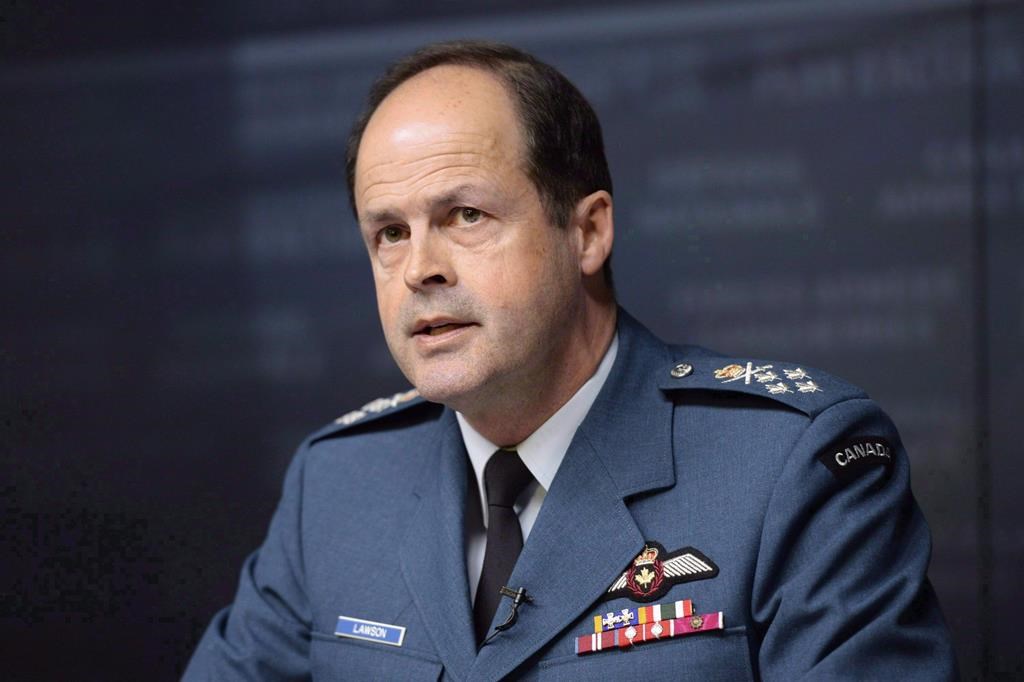Three retired Canadian defence leaders say chief of defence staff Gen. Wayne Eyre making the right move in sharing public statements about the challenges facing the Canadian Armed Forces (CAF) around personnel shortages, aging equipment and operational readiness.

This level of candor is not usually seen among military leaders when it comes to sharing issues with the CAF, but retired Royal Canadian Air Force commander and former chief of defence staff Gen. Tom Lawson sees it as a positive.
On the Jan. 7, 2024 episode, Stephenson sat down with Lawson, retired Royal Canadian Navy Commander Vice-Admiral Mark Norman and retired vice-chief of defence staff Lt.-Gen. Guy Thibault to discuss the issues facing the CAF.
“Some of the problems that the chief and his entire leadership cadre are dealing with are bigger and internal compared to what the three of us dealt with,” Lawson said.
“The shortage of personnel, the rusting out of fleets and the shortage of spare parts, really things that make it very tough today. And then of course, on top of all that, the decrease in the budget that was just announced.”

As part of broader budgetary deliberations, Defence Minister Bill Blair has been tasked with shaving $1 billion off defence expenditures. Blair previously said they are looking for efficiencies in areas like consulting and administration.
Meanwhile, the CAF is operating in an increasingly volatile world with the ongoing war in Ukraine, the Israel-Hamas conflict, military posturing from China and increasing calls to help assist on natural disasters.
“This is, unfortunately, kind of a perfect storm of all of these challenges overlapping in time and space with the mounting external challenges related to global security,” Norman said.
“The team that’s trying to manage to lead their way through this. Everywhere they turn, they’ve got another they got another roadblock, obstacle and challenge.”
While recruitment across the CAF and equipment challenges are pressing day-to-day problems, Norman sees time as the root of the issues.
“The challenge is one of time and you can’t compress time. It’s taken decades for these problems to really come home to roost the way that we’re seeing them play out now and there is no quick fix. Even if there was an appetite and a will to try and fix it,” he said.

Canada has also faced questions on its ability to meet commitments like spending two per cent of GDP on defence as outlined in our membership in NATO.
Thibault said that Canada is showing it can still be a player on the international stage, pointing to a joint operation in Lativa being led by Canada, but acknowledged the shortcomings.
“We have capabilities that are useful, but we don’t have the full kind of capability suite to be able to match the expectations for Canada to fully to meet our alliance contribution,” Thibault said.
“The Canadian Forces are an insurance policy that are there for those emergencies that you can’t foresee, and so not being ready is kind of the risk that we take by not being ready for that which is unforeseen.”
The retired CAF leaders agree there are positive steps on the procurement side, with Lawson pointing to more than $40 billion in Air Force contracts upgrading Canada’s fleet of military planes over the next few decades.
However, Norman stresses the need to wholesome long-term planning to ensure there are people to help operate and maintain new military equipment.
“Even new stuff is a long way away and it eventually becomes old stuff,” Norman said. “And that has to be factored into the long-term planning.”




Comments